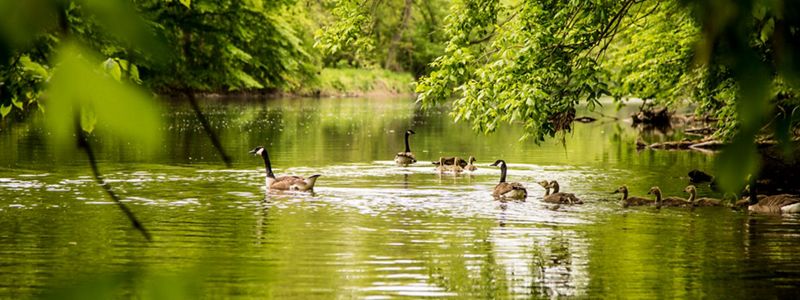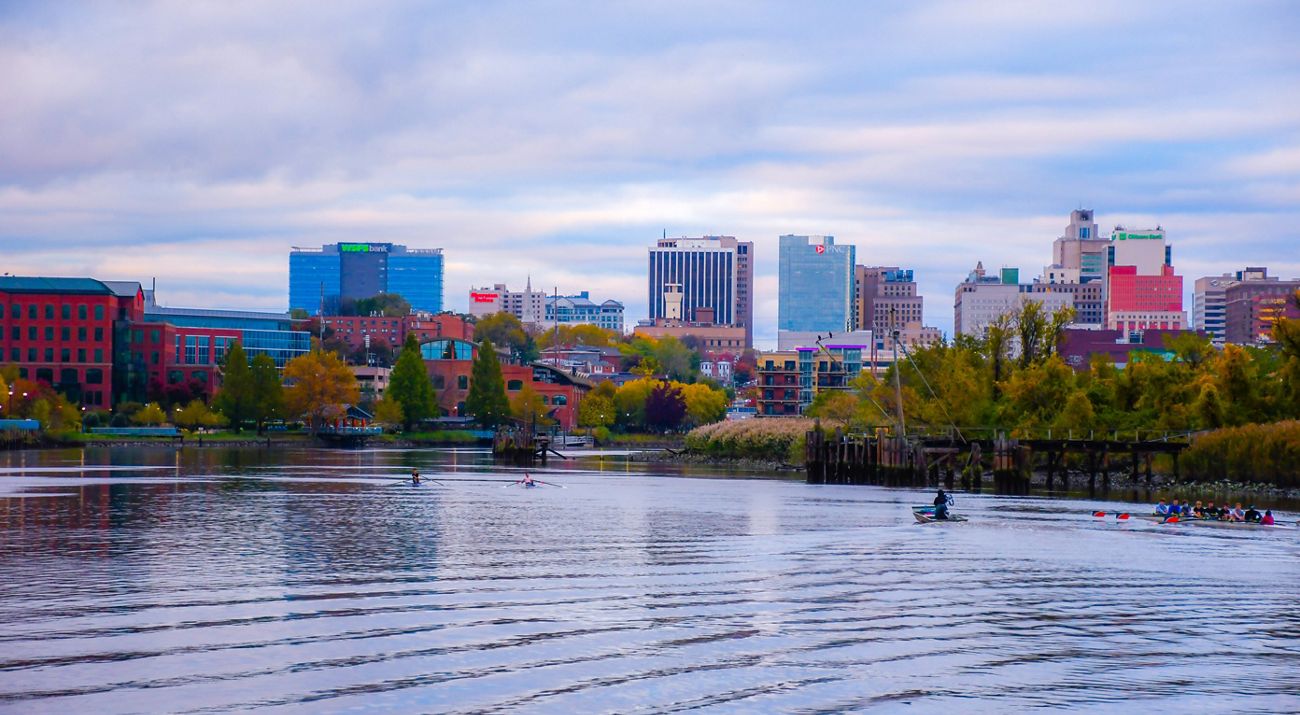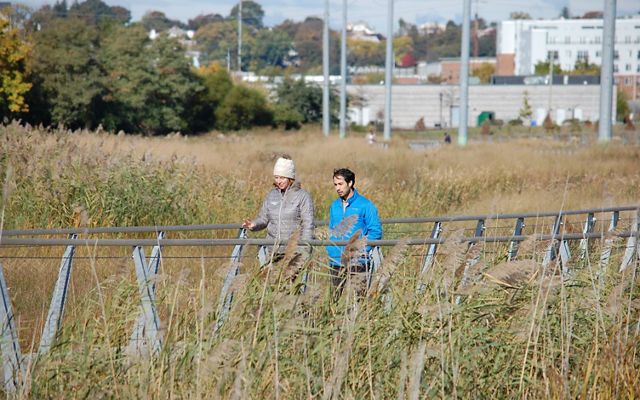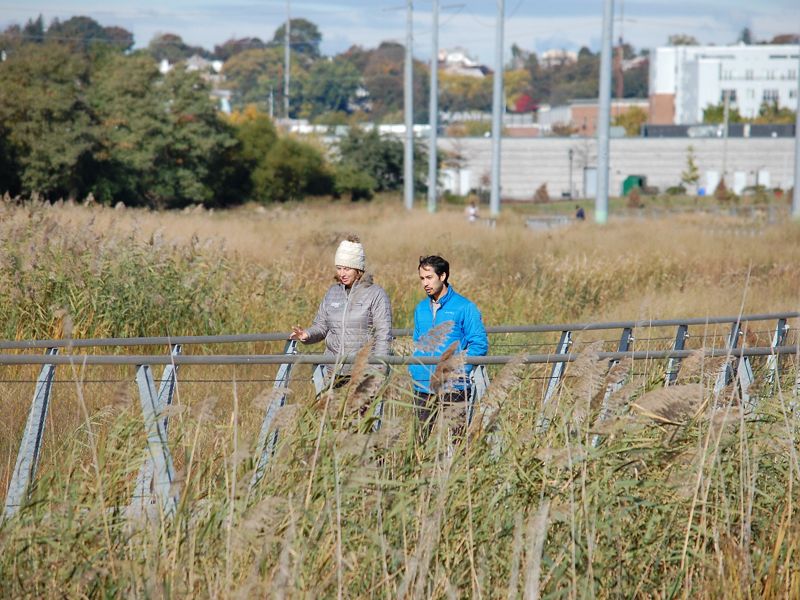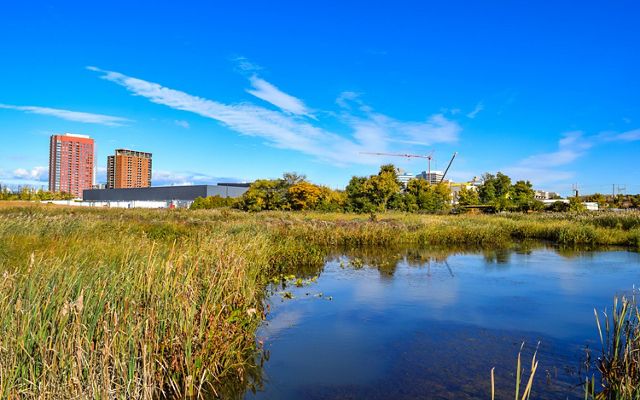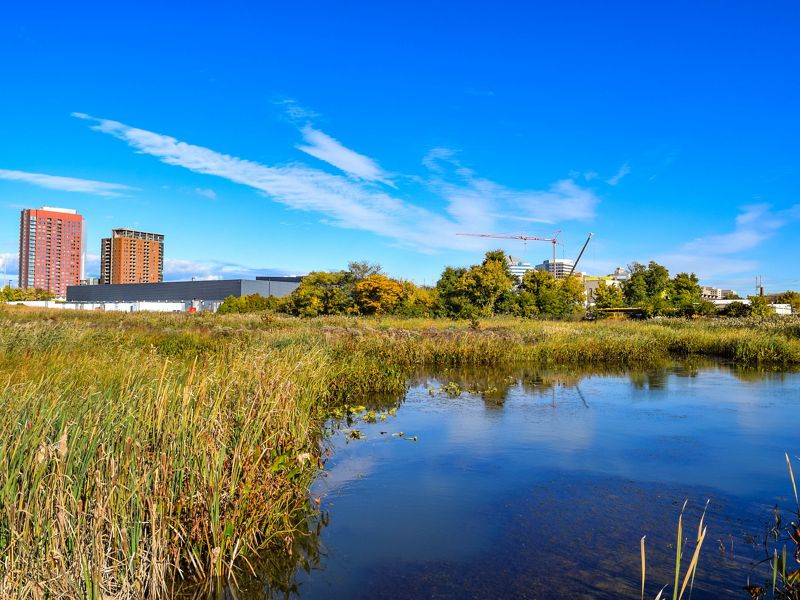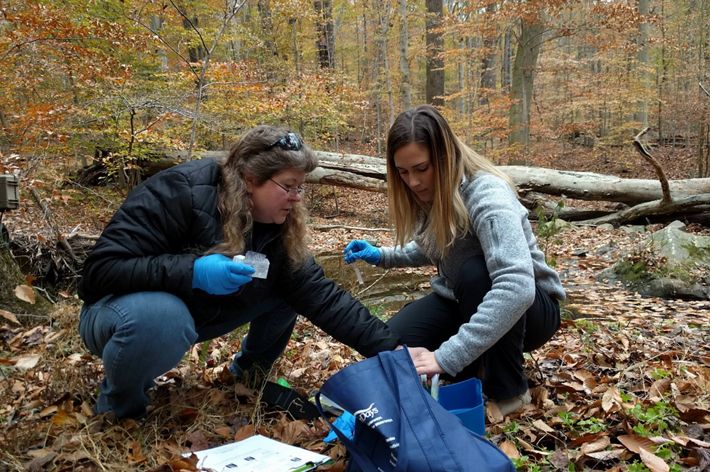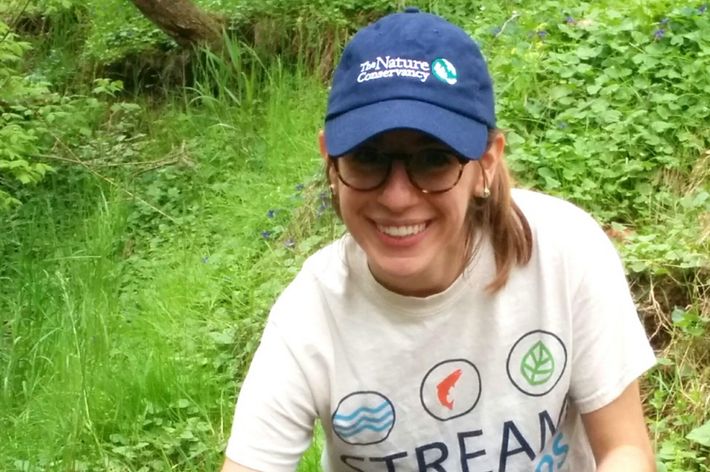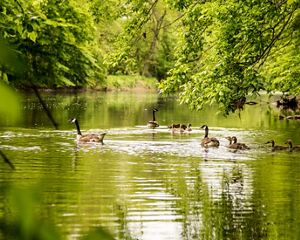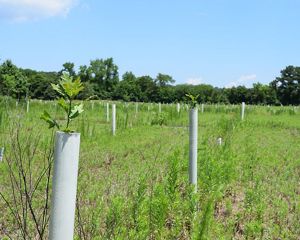Urban Conservation
Using nature-based solutions to help people and nature thrive together.
The Nature Conservancy has established a global cities program and a network of 21 urban conservation programs in the U.S. with the goal of changing the relationship between cities and nature. We know using natural solutions to address many of the challenges facing urban areas can create more livable communities and a world where people and nature thrive together.
In Wilmington, our strategies include promoting nature-based solutions to address a wide variety of social and environmental challenges and demonstrating the efficacy of our projects through sound research and evaluation. We are also working to inspire the next generation of environmental stewards and engage residents in community science research to improve water quality and the health of urban forests. Finally, we are working with the city and community partners to develop policies that tackle the challenge of making Wilmington a more sustainable place to live.
Southbridge Wilmington Wetlands Park
For decades, during nearly every major storm event, residents of the Southbridge neighborhood in Wilmington would find their streets and sidewalks flooded with nearly 2.1 million gallons of raw sewage and stormwater. Situated within a tidal floodplain of the Christina River, Southbridge has experienced chronic flooding, intensified by sea-level rise.
Since the early 2000s, the residents of Southbridge have been advocating for solutions through the Southbridge Civic Association. In 2014, the community’s decades-long efforts paid off with the city’s approval of the Southbridge Wetlands Park project. Completed in 2022, the project has reengineered the neighborhood’s aged plumbing to separate 36 acres of combined storm and sanitary sewers.
Once the sewer is separated, the storm sewer overflow will run into an engineered wetland, where it will supply water for a nearly 30-acre “wetland park.” TNC has supported the project for many years, providing critical funding to backstop the city's acquisition of a final parcel, which expanded the project footprint from 17 to 27 acres.
This award-winning community park includes a range of natural habitats, from freshwater tidal marsh to shrub meadows and upland forests. A boardwalk traverses the park to connect Southbridge with the bustling riverfront to the west. This project illustrates how restoring nature in cities can offer healthy natural ecosystems while addressing community challenges such as flooding.
Connecting People & Nature
Stream Stewards is a program designed to engage people of all ages and backgrounds in taking care of their waterways. Adult volunteers are invited to sign up for a series of training sessions and actively participate in monitoring the water quality of streams that flow through First State National Historical Park to Brandywine Creek. A curriculum is being developed for students and their families to become engaged in water quality monitoring near their schools and homes in Wilmington. Participants will learn about stewardship opportunities for improving the health of their watersheds, and contributing to conservation action in their communities.
Looking Ahead: Planning a Greener, More Equitable Future
For decades, cities across the country have been experimenting with solutions to legacy problems faced by many urban communities in the United States—problems rooted in the nation’s history of racial discrimination in housing and urban planning.
Sharing experiences, lessons, science and best practices both locally and globally is what sets TNC apart. Now that TNC's conservation efforts in Wilmington and Philadelphia are being integrated into one program, TNC stands to have a more regional conservation impact, embedding both cities into the broader landscape of the lower Delaware River.
As the nation works to rebuild the global economy, the recovery process must include opportunities not only to resume our old way of life, but also to rebuild businesses, industries and jobs in ways that enhance equity, strengthen resilience and support a healthy environment. Economic recovery and environmental action must go hand-in-hand. Nature’s future is our future.
We Can’t Save Nature Without You
Sign up to receive monthly conservation news and updates from Delaware.
